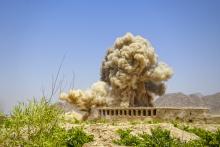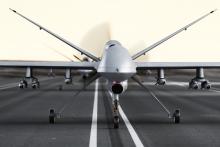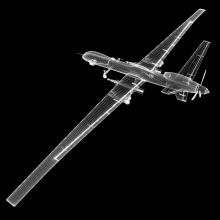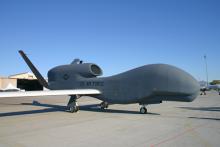drone strikes

Which has ever brought a peaceful future nearer to neighborhoods: weaponized military and surveillance systems, or the efforts of concerned neighbors seeking justice? The United States withholds resources needed for the task of healing the battle scars our country has inflicted on so much of the world. If our fear is endless, how will these wars ever end?

The joint statement — from the group who have experience of operating drones over Afghanistan, Iraq and other conflict zones — represents a public outcry from what is understood to be the largest collection of drone whistleblowers in the history of the program. Three of the letter writers were sensor operators who controlled the powerful visual equipment on U.S. Predator drones that guide Hellfire missiles to their targets.
…The four are represented legally by Jesselyn Radack, director of national security and human rights at the nonprofit ExposeFacts. “This is the first time we’ve had so many people speaking out together about the drone program,” she said, pointing out that the men were fully aware that they faced possible prosecution for speaking out.

Bugsplat is software used to calculate and reduce the death of innocent people in drone strikes. It's also how Predator drone operators talk about the people whom the American military kills in these missions. The Bureau of Investigative Journalism estimates that the U.S. is responsible for 2,500 deaths in Pakistan, Yemen, Somalia since 2001, including dozens of children. This figure doesn¹t even count Iraq and Afghanistan. But we don't know for sure how many innocents die because most Americans, including too many of our political and military leaders, do not even know when drone strikes happen, whom exactly they target and why, and whether they are successful in achieving their objectives.
Drone attacks require the president's review and approval. And it is the military's responsibility to execute plans so that no innocent lives are lost. But our democracy is a work in progress, and it will only function well if American citizens stay involved. Given President Obama's request last fall for Congress to approve strikes in Syria, we should call on elected officials to fully debate the 2001 Authorization for Use of Military Force — which has often served as a blanket legal justification for drone strikes, going far beyond its original purpose to take action against those responsible for the September 11 attacks. Repealing the act will help reinstate the checks and balances that are hallmarks of democracy. Our leaders must be more transparent.

In 2002, at a time when insurance providers were unwilling to provide coverage for losses resulting from acts of terrorism, and when construction and utility companies were stalling in their development projects, Congress passed the Terrorism Risk Insurance Act (TRIA). They decided to socialize some of the financial risk, giving a federal government guarantee on insurance payouts exceeding 100 million dollars.
Over the next 12 years, Presidents Bush and Obama and six different Congresses made countless decisions to increase the risk of terrorism (and of a bailout under TRIA). Of course, the most brutally profound effects of those decisions were imposed on children, women, and men in other parts of the world. Likely the least affected people were the ones complaining in the business sections of major papers last month.
They are worried because TRIA expired January 1. An unexpected fluke on the last day of the last congressional session is to blame. “Everybody expected this would get done,” fumed Manhattan developer Douglas Durst, to New York Times reporter Jonathan Weisman.
He won’t be waiting all that long — House Speaker John Boehner promised the Baltimore Sun to “act very quickly” to renew TRIA when Congress reconvenes.

Is the U.S. scapegoating Al Qaeda? It’s an odd question, I know, but it reared its ugly head as I read about the new reports from Amnesty International and Humans Rights Watch on U.S. drone strikes. The scapegoating mechanism is a very precise instrument that accrues enormous benefits to the scapegoater. By accusing their scapegoat of wrongdoing, a scapegoater ingeniously hides from the reality of their own guilt. Now here’s the weird thing: a scapegoat does not have to be innocent to function as a scapegoat. Scapegoats can be evil, nasty, ruthless, amoral sons-of-bitches and still function perfectly well as a scapegoat. Which is why I ask the question: Is the U.S. scapegoating Al Qaeda to hide from its own guilt?
With that in mind, I invite you to read these few excerpts that raised the question for me, with key phrases in boldface:
[continued at jump]